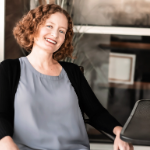No Records Found
Sorry, no records were found. Please adjust your search criteria and try again.
Google Map Not Loaded
Sorry, unable to load Google Maps API.
- Katherine
- Hays
- PO Box 43645
Lafayette
Louisiana
70504-3645
United States - University of Louisiana at Lafayette Speech, Language and Hearing Center

Lafayette
Louisiana
70504-3645
United States
I adopt a child-centered, strengths-based, and family-inclusive approach. I strongly believe in honoring the child as an individual with their own strengths and support needs. I apply the principles of motor learning in focused work on speech production. I strongly value parental input and family involvement, such that I often collaborate with parents in choosing speech targets that will be meaningful and motivating for their child, and I help equip parents with skills and strategies to facilitate practice of those targets at home. I embrace the use of AAC (both high and low tech) to empower kids with communication options as they improve their speech. I also actively support global language development and literacy skills during therapy sessions.
I deeply value parental input and participation in the evaluation and therapy process. Parents are actively involved in both assessment and treatment, every step of the way. I make sure parents are informed of therapy goals and their rationale. I work with parents to “train” them to practice specific speech targets at home, and check in with them frequently about how their “home program” is going. I consult with parents about educational considerations, often helping parents choose which school environment might be best to support their child’s needs. I also work with parents to more globally support language and literacy development – this may include collaborating with parents to implement and facilitate AAC use, empowering them to better support their child’s reading and writing development, and problem-solving various challenges that may arise in less familiar environments (e.g., friends’ houses, transition to a new daycare, etc.).
I have extensive experience with AAC, both high- and low- tech. Decision making in respect to AAC must be highly individualized and relevant to a child’s specific needs. The choice of which AAC modality/modalities must take into account the whole child and their everyday environments/experiences. AAC should be a collaborative partnership between the clinician, the child, the family, and any other salient members of the support team (e.g., teacher, siblings, etc.). I view AAC as a way to empower a child with communicative options. My general rule of thumb is that if speech is not “getting the job done” in allowing a child to express themselves fully and effectively, then AAC needs to be embraced as an avenue toward fostering communicative agency. AAC also supports continued language development and can sometimes even support speech production practice! I use AAC to ensure that the children I work with have meaningful access to communication in the contexts that matter to them (at home, at school, during dance class or sports practice, at a family gathering, etc.).




